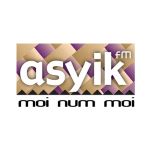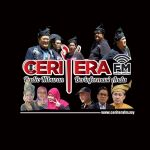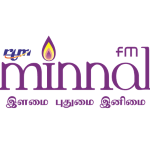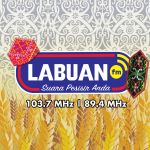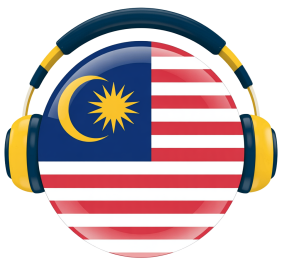Listen Live
Asyik FM, broadcasting on 91.1 FM in Kuala Lumpur and 102.5 FM in Shah Alam, is a unique Malay-language radio station dedicated to Malaysia’s Orang Asli communities. Operated by Radio Televisyen Malaysia (RTM) from Wisma Radio, Angkasapuri, Asyik FM has been a cultural cornerstone since its first air date on February 3, 1959. With its vibrant mix of pop music, traditional Orang Asli songs, and community-focused programming, the station embodies its slogan, “Moi Num Moi” (Temiar: Different from Others). In this blog post, we’ll explore Asyik FM’s rich history, programming, reach, and why it remains a vital voice for Malaysia’s indigenous peoples.
A Historic Voice for the Orang Asli
Asyik FM began as Radio 7 Unit Orang Asli, launched on February 3, 1959, via shortwave at 6100 kHz, broadcasting for just 30 minutes daily from 3:00 PM to 3:30 PM. Its initial mission was to raise awareness among Orang Asli communities about national security, countering communist influences during the Malayan Emergency. Over time, as Malaysia achieved peace, the station’s focus shifted to human development, education, and cultural preservation, aligning with RTM’s public-service goals.
In 2005, Radio 7 rebranded as Asyik FM, adopting FM frequencies (91.1 MHz in Kuala Lumpur and later 102.5 MHz in Shah Alam) for broader reach. The station broadcasts in dialects like Jakun, Semai, Temiar, and Temuan, alongside Bahasa Melayu, to connect with Orang Asli listeners. By 2007, it extended its airtime to 14 hours (8:00 AM to 10:00 PM), and since August 31, 2011, it operates from 8:00 AM to 11:00 PM, sharing frequencies with Salam FM, an Islamic station run by JAKIM from 11:00 PM to 8:00 AM. Asyik FM’s evolution reflects its commitment to empowering Malaysia’s indigenous communities while embracing modern broadcasting.
Programming That Celebrates Culture
Asyik FM broadcasts 15 hours daily, from 8:00 AM to 11:00 PM, offering a diverse mix of pop music, traditional Orang Asli songs, talk shows, and educational content in Bahasa Melayu and Orang Asli dialects. Its programming is tailored to engage indigenous listeners while promoting cultural pride and awareness. The station’s playlist includes contemporary Malaysian pop hits and traditional music like Sewang, a ceremonial Orang Asli genre, as highlighted by its recording sessions in Pos Sinderut, Pahang.
Key programs include:
- Pagi Asyik: A morning show blending pop hits, traditional songs, and community news, energizing listeners in Kuala Lumpur and beyond.
- Berita Orang Asli: Hourly news updates covering indigenous issues, national events, and health campaigns, often in collaboration with the Department of Orang Asli Affairs.
- Pilihanku: A listener-driven show featuring song requests and shoutouts, fostering integration among Orang Asli tribes.
- Ceramah Kesihatan: Educational segments on health and wellness, addressing rural communities’ needs and promoting government initiatives.
Asyik FM’s presenters bring authenticity and warmth, often using dialects to connect with listeners. The station has nurtured Orang Asli talent, with groups like Kumpulan Jelmol becoming recording artists. Its focus on cultural preservation, as noted on asyikfm.rtm.gov.my, makes it a vital platform for indigenous voices, while pop music broadens its appeal to urban audiences in the Klang Valley.
Regional Reach and Accessibility
Asyik FM’s primary frequencies—91.1 FM in Kuala Lumpur and 102.5 FM in Shah Alam—cover the Klang Valley, including Selangor, Putrajaya, and parts of Negeri Sembilan, Malacca, and Pahang. Additional frequencies, such as 95.6 MHz from Gunung Ledang (Johor) and 105.1 MHz from Gunung Brinchang (Cameron Highlands), extend its reach, though some areas experience interference from stations like IKIM.fm or MY FM. Online streaming via rtmklik.rtm.gov.my and the RTM Klik app ensures accessibility in regions with signal issues, such as Bidor or Sungkai.
The station’s digital platform reaches global audiences, including the Malaysian diaspora and Orang Asli communities in remote areas. Its coverage of the Klang Valley, Malaysia’s economic hub, ensures it serves both urban and rural listeners, from Kuala Lumpur’s city dwellers to indigenous villages in Pahang.
| City/Area | Frequency |
|---|---|
| Kuala Lumpur | 91.1 FM |
| Shah Alam | 102.5 FM |
| Johor/Malacca | 95.6 FM |
| Cameron Highlands | 105.1 FM |
Contact Information and Digital Presence
Asyik FM maintains robust listener engagement through various channels. Below is a table with its contact details and online platforms:
| Contact Type | Details |
|---|---|
| Address | Tingkat 1 Utara, Wisma Radio, Angkasapuri, 50614 Kuala Lumpur |
| Phone | +60 13-315 1600 / +603 2282 3567 |
| asyikfmrtm@gmail.com | |
| Website | https://asyikfm.rtm.gov.my/ |
| Social Media | Facebook: https://www.facebook.com/ASYIKfm/ |
The station’s website, asyikfm.rtm.gov.my, offers live streaming, polls for favorite Orang Asli artists, and updates on cultural events like Sewang recordings. Its Facebook page, with over 32,000 followers, is a vibrant hub for listener interaction, sharing program highlights and community stories. The email, asyikfmrtm@gmail.com, and phone lines provide direct channels for feedback and song requests, ensuring the station remains connected to its audience.
Why Asyik FM Stands Out
Asyik FM’s dedication to Orang Asli culture sets it apart in Malaysia’s radio landscape. Its use of Jakun, Semai, Temiar, and Temuan dialects alongside Bahasa Melayu fosters inclusivity, making it a rare platform for indigenous voices. The station’s blend of pop and traditional music, as noted by radio-online.my, appeals to both urban youth and rural communities, bridging cultural gaps.
Its public-service role, emphasized by RTM, ensures programming that educates and empowers, from health talks to development initiatives. Asyik FM’s success in nurturing talents like Kumpulan Jelmol highlights its cultural impact, while its listener-driven shows like Pilihanku promote tribal integration. The station’s slogan, “Moi Num Moi,” encapsulates its unique identity, offering content that’s truly “different from others.”
Cultural and Community Impact
Asyik FM is a cultural lifeline for Malaysia’s Orang Asli, preserving traditional music and languages while promoting modern indigenous talent. Its coverage of health campaigns and community events, as noted on ms.wikipedia.org, addresses rural needs, empowering listeners with vital information. The station’s role in fostering integration among Orang Asli tribes strengthens social cohesion, aligning with Malaysia’s multicultural ethos.
By streaming online, Asyik FM connects with global Orang Asli communities, keeping them rooted in their heritage. Its base in Kuala Lumpur, Malaysia’s capital, amplifies its influence, making it a beacon for indigenous pride and cultural preservation.
The Future of Asyik FM
Asyik FM is well-positioned for the digital age, with its RTM Klik integration and active social media presence. The station could expand its reach by launching podcasts, collaborating with Orang Asli artists, or improving streaming stability in interference-prone areas. Enhancing its app with on-demand content could attract younger listeners, while more dialect-specific programs could deepen its cultural impact.
By staying true to its “Moi Num Moi” ethos, Asyik FM can continue to empower Orang Asli communities, blending tradition with modernity to remain a vital cultural voice.
A Listener’s Pride
For Orang Asli listeners and Klang Valley residents, Asyik FM is a daily celebration of identity. Whether it’s tuning into Pagi Asyik in Kuala Lumpur or streaming Pilihanku in Pahang’s villages, 91.1 FM and 102.5 FM bring culture to life. Fans cherish its music, educational content, and authentic presenters, which evoke pride in Malaysia’s indigenous heritage.
Conclusion
Asyik FM, with its 91.1 FM and 102.5 FM signals since 1959, is a cultural gem in Kuala Lumpur’s airwaves. Its Orang Asli focus, vibrant programming, and digital reach make it a unique platform. Tune in on 91.1 FM, stream at asyikfm.rtm.gov.my, or follow on Facebook to experience Asyik FM—a station that’s truly “Moi Num Moi.”
